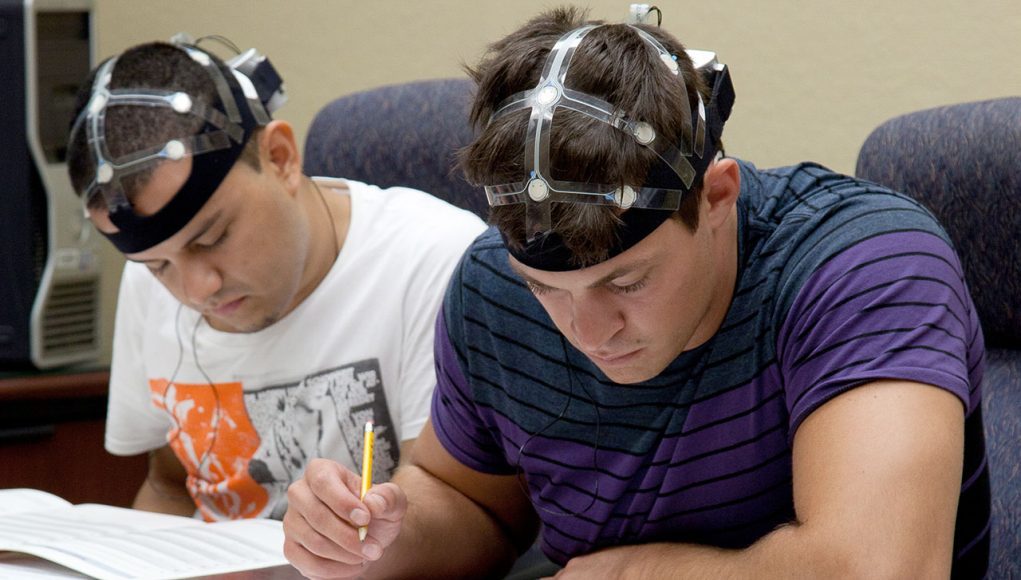 Advanced Brain Monitoring is a 17-year old neurotechnology company that has been able to extract a lot of really useful information from EEG data. They’ve developed specific EEG Metrics for drowsiness, inducing flow states, engagement, stress, emotion, and empathy as well as biomarkers for different types of cognitive impairment. They’ve also developed a brain-computer interface that can be integrated with a VR headset, which has allowed them to do a couple of VR medical applications for PTSD exposure therapy as well as some experimental VR treatments for neurodegenerative diseases like Dementia.
Advanced Brain Monitoring is a 17-year old neurotechnology company that has been able to extract a lot of really useful information from EEG data. They’ve developed specific EEG Metrics for drowsiness, inducing flow states, engagement, stress, emotion, and empathy as well as biomarkers for different types of cognitive impairment. They’ve also developed a brain-computer interface that can be integrated with a VR headset, which has allowed them to do a couple of VR medical applications for PTSD exposure therapy as well as some experimental VR treatments for neurodegenerative diseases like Dementia.
LISTEN TO THE VOICES OF VR PODCAST
Audio PlayerI had a chance to catch up with Advanced Brain Monitoring’s CEO and co-founder Chris Berka at the Experiential Technology conference where we talked about their different neurotechnology applications ranging from medical treatments, cognitive enhancement, accelerated learning, and performance training processes that guide athletes into optimal physiological flow states.
Advanced Brain Monitoring operates within the context of a medical application with an institutional review board and HIPAA-mandated privacy protocols, and so we also talked about the ethical implications of capturing and storing EEG data within a consumer context. She says, “That’s a huge challenge, and I don’t think that all of the relevant players and stakeholders have completely thought through that issue.”
They’ve developed a portfolio of biomarkers for neurodegenerative diseases including Alzheimer’s Disease, Huntington’s Disease, Mild Cognitive Impairment, Frontal Temporal Dementia, Lewy Body Dementia, Parkinison’s Disease. They’ve shown that it’s possible to detect a number of medical conditions based upon EEG data, which raises additional ethical questions for any future consumer-based VR company who records and stores EEG data. What is their disclosure or privacy-protection obligations if they are able to potentially detect a number of different medical conditions before you’re aware of them?
The convergence of EEG and VR is still in the DIY and experimental phases with custom integrated B2B solutions that are coming soon from companies like Mindmaze, but it’s still pretty early for consumer-based applications for EEG and VR. Any integration would have to require piecing together hardware options from companies like Advanced Brain Monitoring or the OpenBCI project, but then you’d also likely need to roll your own custom applications.
There are a lot of exciting biofeedback-driven mindfulness applications or accelerated learning and training applications that will start to become more available, but that some of the first EEG and VR integrations will likely be within the context of medical applications like neurorehabilitation, exposure therapy, and potential treatments for neurodegenerative diseases.
Support Voices of VR
- Subscribe on iTunes
- Donate to the Voices of VR Podcast Patreon
Music: Fatality & Summer Trip







